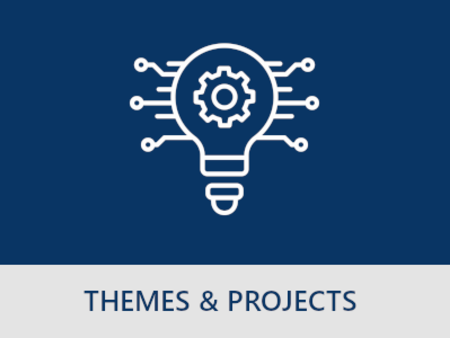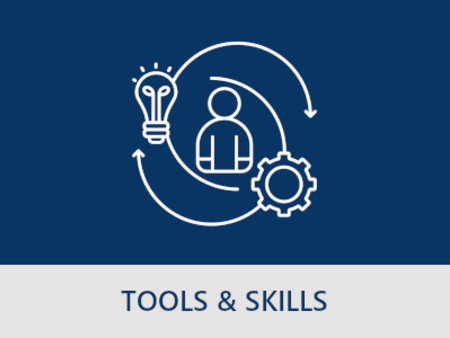Research to support the climate transition
Florence Cayocca has been the new head of the Dynamics of Coastal Ecosystems unit since last April. Returning to Ifremer after an 8-year stint at the French Office for Biodiversity, which awakened her to the role of humans in the environment, the researcher is keen to pass on her experience to tackle the challenges of transition.
How did your vocation as a marine researcher come about?
As a child and teenager, I used to go sailing with my parents, which is what made me want to explore the marine environment. After a preparatory course at the Louis-le-Grand lycée in Paris, I entered the Ponts et Chaussée engineering school, which I chose to specialise in ocean engineering in my 3rd year. During my studies, I did a one-year placement at Ifremer in a marine geophysics laboratory. I then went to the USA to do a Masters in Ocean Engineering at the University of California at Santa Barbara. This was followed by a thesis to understand and model the morphological evolution of the Archachon Basin entrance channels, in a laboratory that has now become Dhysed.
What's next?
I was recruited in marine geology at Geo-Ocean to work on the numerical modelling of turbidity currents. I then wanted to get closer to environmental issues, so I joined Dyneco at the time. I became head of the Dhysed laboratory where I worked on the impact of various human activities on sediment flows. Because I wanted to go beyond a purely 'knowledge' approach to the environment, I joined the Agence des aires marines protégées (now the OFB) to see what was happening in terms of the management and protection of the marine environment.
After almost 20 years at Ifremer, you left for the OFB only to return 7 years later. What motivated your return?
I'm a researcher at heart and I have an insatiable curiosity about 'the scientific thing'. My return to the world of research fulfils this need for understanding, particularly in the areas covered by DYNECO. But I also want to use my experience at the OFB to help ensure that the knowledge we produce is actually useful to society: it allows me to satisfy my ecological commitment.
Researchers are knowledgeable people. We are convinced that our scientific vision of the world is the most relevant. To know how to protect the marine environment - which is one of Ifremer's ambitions! - we need knowledge, but we also need this knowledge to be passed on to managers so that they can use it in their decision-making. Researchers don't fully understand what managers expect of them - and they themselves don't know how to express their needs. My experience at the OFB has made me aware of this - and calls for research projects now recognise the need to bring communities together.
What drives you?
Curiosity and the desire to understand. At the OFB, I understood the importance of the social sciences. This link between the environment and human beings is vital to take into account, especially in this global context where the challenges of saving our planet are immense. I'd like to see a better link between the world of research and the application of their approaches to tackling the challenges of transition. This is a matter of urgency.
What is your role and your missions at Dyneco?
As head of the unit, I'm responsible for the smooth running of the unit: monitoring budgets, jobs and careers, scientific leadership, structuring relations with the other units and Ifremer's management, as well as with the outside world. It is a role of facilitator for the emergence and realisation of projects. But it's also an interface with the various departments within the institution.
Since taking up my post, I've been working to get to know the projects and the members of the Unit individually. My mission is also to ensure the well-being of the team. My aim is to ensure that everyone feels part of the Unit.
What are the unit's objectives and challenges?
I would like to continue the work of the unit's former director, Cédric Bacher, so that the directions and trajectories of the unit's development are the result of the collective intelligence of each of its members. That proposals emerge spontaneously to help the unit grow. One of my objectives is also to ensure that the unit's work is known and recognised both internally and externally. I'd like us to insist on promoting our work not only to our peers, but also to other Ifremer units, and to various stakeholders and the general public.
What are the Unit's key current and future projects?
The unit coordinates some sixty projects aimed at studying the response and predicting the evolution of coastal and estuarine ecosystems subjected to natural or anthropogenic disturbances.
You said you were returning to research. Do you have any current projects?
I'm involved in the RIOMar (River-dominated Ocean Margins) research project, which aims to understand and predict changes in French coastal zones under the influence of rivers in the 21st century. Unsurprisingly, I'm coordinating actions to bring researchers and managers together! At Institute level, I also want to get involved with the teams involved in structuring the observation and modelling of coastal environments.
What is your greatest professional achievement?
When I left the OFB, many of the people I had supervised thanked me very warmly. They told me how much I had succeeded in helping them develop in their jobs, encouraging and motivating them. I said to myself that I had been of some use (laughs). I insisted that they train and become specialists in their field, that they have confidence in their mission and their ability to interact with researchers. They succeeded. Of course, it's a very different set-up when you're running a unit, but I hope that I'll also be able to instil a positive dynamic and get us all moving in the right direction.
Biography
1986-1989 Lycée Louis-le-Grand
1989-1993 Ecole Nationale des Ponts et Chaussées
1992-1993 Master degree in ocean engineering
1993-1996 Doctoral thesis (University of Bordeaux) in physical oceanography.
1996-2003 Researcher in the Marine Biology Department at Ifremer
2003-2015 Researcher in numerical modelling and data acquisition in the coastal environment department at Ifremer
2015-2019 Head of the Scientific Knowledge and Information Department, then Head of the Marine Environment Department at the French Biodiversity Agency (AFB)
2020-2023 Head of the Ecosystems and Uses of the Marine Environment Department, then Head of the National Offshore Wind Observatory Project at the French Biodiversity Agency.
Since April 2023 Director of the Dynamiques des Ecosytèmes Côtiers (DYNECO) research unit.






